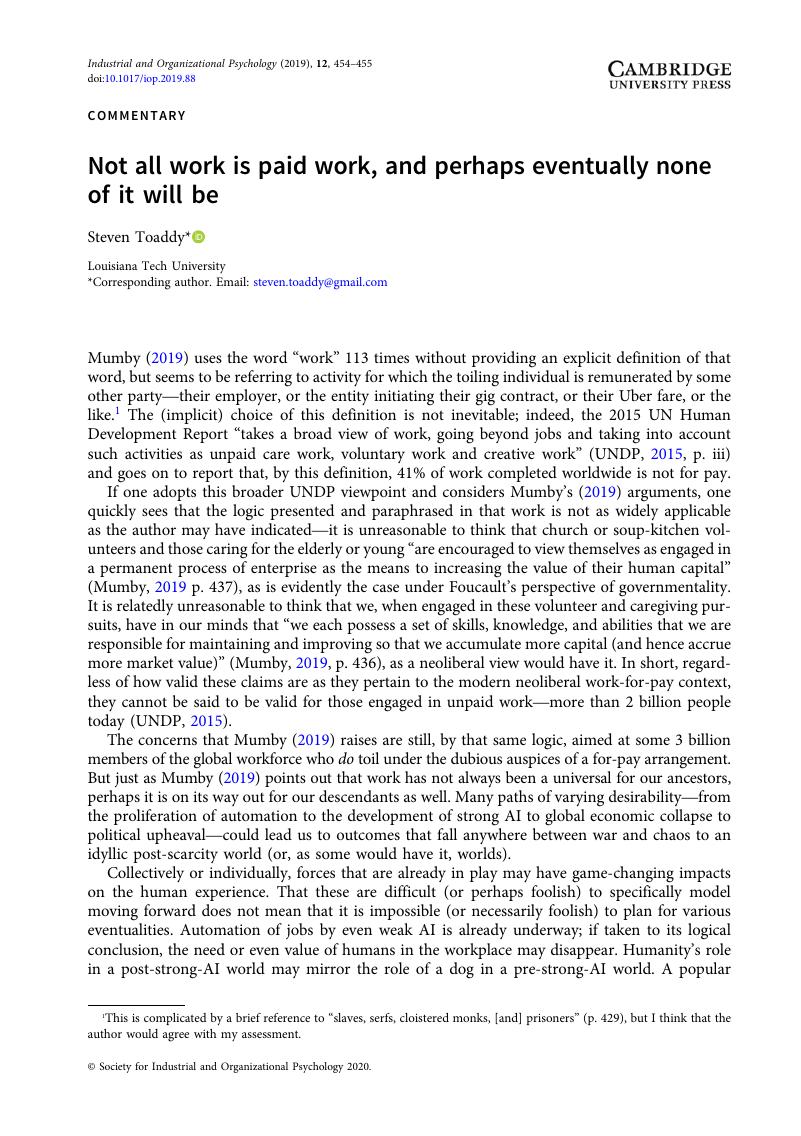No CrossRef data available.
Article contents
Not all work is paid work, and perhaps eventually none of it will be
Published online by Cambridge University Press: 14 January 2020
Abstract
An abstract is not available for this content so a preview has been provided. Please use the Get access link above for information on how to access this content.

- Type
- Commentaries
- Information
- Copyright
- © Society for Industrial and Organizational Psychology 2020
References
Deci, E. L., & Ryan, R. M. (1985). Intrinsic motivation and self-determination in human behavior. New York: Plenum.CrossRefGoogle Scholar
Hackman, J. R., & Oldham, G. R. (1975). Development of the job diagnostic survey. Journal of Applied Psychology, 60(2), 159–170.CrossRefGoogle Scholar
Mumby, D. K. (2019). Work: What is it good for? (Absolutely nothing)—a critical theorist’s perspective. Industrial and Organizational Psychology: Perspectives on Science and Practice, 12(4), 429–443.Google Scholar
United Nations Development Programme (UNDP). (2015). Human development report 2015: Work for human development. Retrieved from http://www.hdr.undp.org/sites/default/files/2015_human_development_report_0.pdfGoogle Scholar




